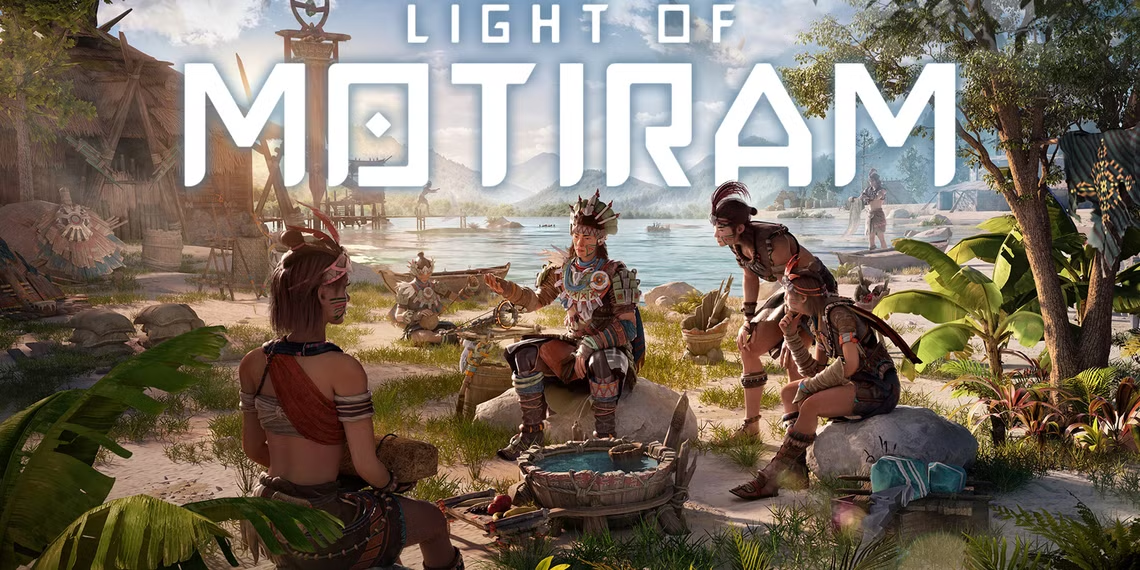Sony Interactive Entertainment has filed a copyright infringement lawsuit against Chinese tech giant Tencent, accusing the company of developing a near-identical clone of the Horizon video game franchise. The game in question, Light of Motiram, is described as an open-world action adventure featuring a post-apocalyptic world populated by mechanical beasts — strikingly similar to the world established in Horizon Zero Dawn and Horizon Forbidden West.
The legal action highlights rising tensions in the gaming industry over intellectual property rights, especially as global studios increasingly borrow from each other’s successful formulas.
A Familiar World: Sony Calls ‘Light of Motiram’ a “Slavish Clone”
In its lawsuit, Sony claims that Light of Motiram copies nearly every defining feature of the Horizon games — from the lush, post-apocalyptic setting and the mechanical creatures, to the female protagonist armed with a bow and the tribal themes throughout the gameplay. According to Sony, the similarities are so pervasive that they could easily mislead players into thinking Light of Motiram is part of the official Horizon franchise.
“The game is a slavish clone,” Sony’s legal filing asserts, “copying Horizon’s aesthetic, story, themes, and gameplay to such a degree that it’s likely to confuse consumers.”
What makes the case more damning, Sony says, is that Tencent had previously pitched a Horizon-themed mobile game to Sony. That pitch included core concepts now present in Light of Motiram — including crafting mechanics, pet taming, multiplayer modes, and “Eastern aesthetic” adaptations of the Horizon IP. Sony rejected the proposal and, months later, Tencent announced Light of Motiram, containing many of the pitched elements.
Platform Promotion and Legal Paradox
In an unexpected twist, Light of Motiram was promoted last year by Sony itself — via the PlayStation China Weibo account. This led to confusion about the nature of the game’s legitimacy, especially since Light of Motiram is reportedly planned for release on both PlayStation 5 and PC via Steam.
However, Sony’s lawsuit makes it clear that the promotional post does not indicate approval or endorsement of the game. Instead, the company argues that the use of such visuals and gameplay mechanics is not just inspiration — it’s appropriation.
Sony is not pursuing patent infringement, as Nintendo did when it recently took legal action against Pocketpair. Instead, the case is rooted in copyright law, suggesting Sony believes that Light of Motiram is not just similar, but unlawfully derivative in a way that violates protected creative expression.
Industry Implications: The Thin Line Between Inspiration and Infringement
Video games have long borrowed from one another. From indie developers mimicking blockbuster mechanics to major studios inspired by cult hits, the exchange of ideas is constant in game development. Titles like Vampire Survivors — widely seen as inspired by Magic Survival and classic Castlevania aesthetics — managed to avoid legal trouble, even leading to official collaborations in some cases.
But the Sony vs Tencent dispute changes the equation. This isn’t a solo developer drawing inspiration from a franchise — it’s one tech titan seemingly lifting the blueprint from another. And Sony isn’t taking it lightly.
The company is asking for financial damages, the destruction of all Light of Motiram materials, and a court order blocking further development or release of the game. If Sony succeeds, it could set a new precedent for how far companies can go before “homage” turns into IP theft.
What’s Next for Tencent’s Light of Motiram?
As the lawsuit unfolds, the future of Light of Motiram remains uncertain. Tencent has yet to issue a detailed public response, and the legal proceedings are likely to stretch into 2026. Whether the game will release in its current form — or at all — is now in question.
If the courts side with Sony, the outcome could reshape how studios pitch and produce games that draw from existing IPs. For now, the gaming community watches closely, as one of the year’s biggest legal showdowns takes shape.
Final Thought:
In an industry where creativity often walks hand in hand with imitation, the Sony vs Tencent case underscores the fragile balance between influence and infringement. With billions at stake and reputations on the line, Light of Motiram might become more than just a game — it could be a legal landmark.




